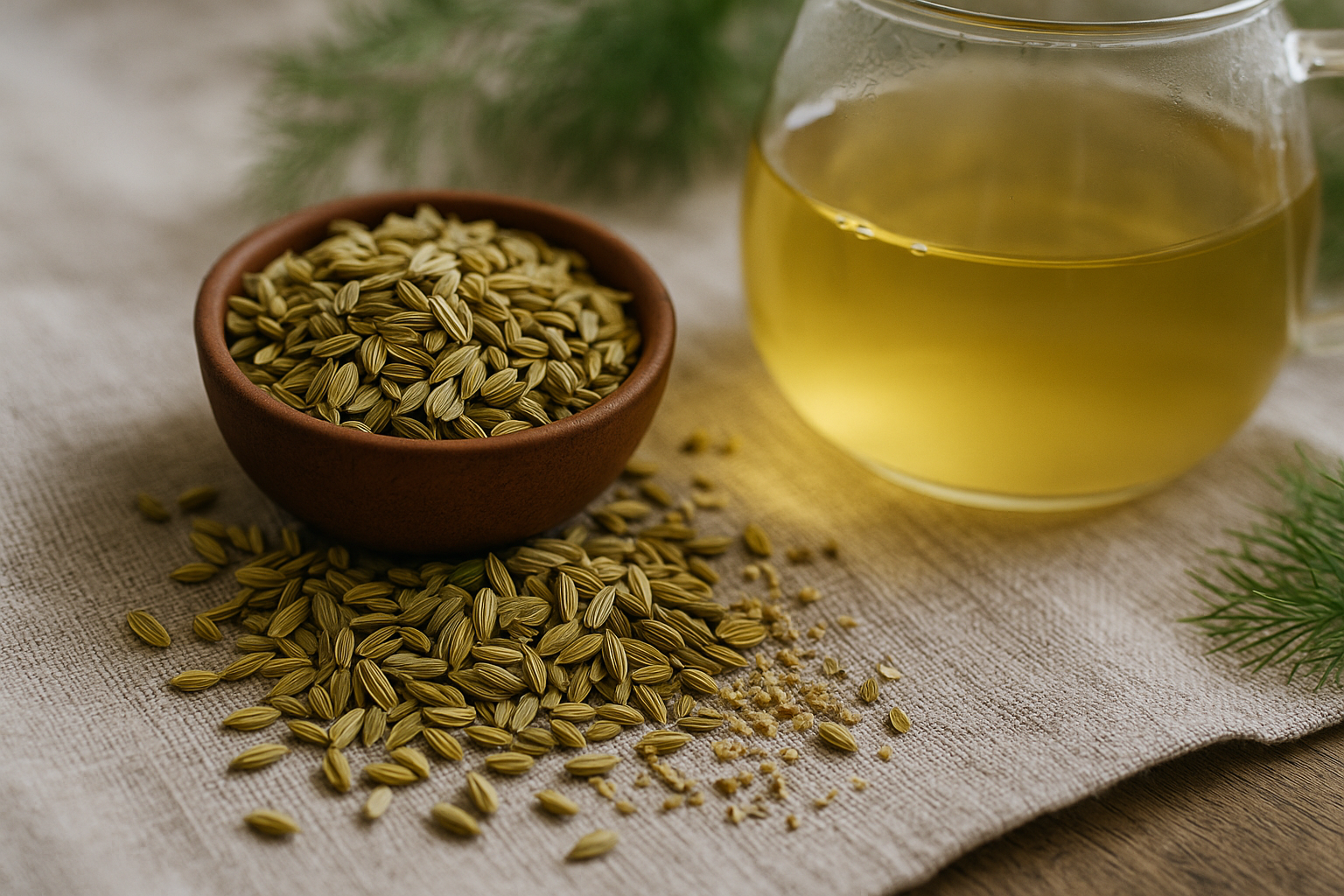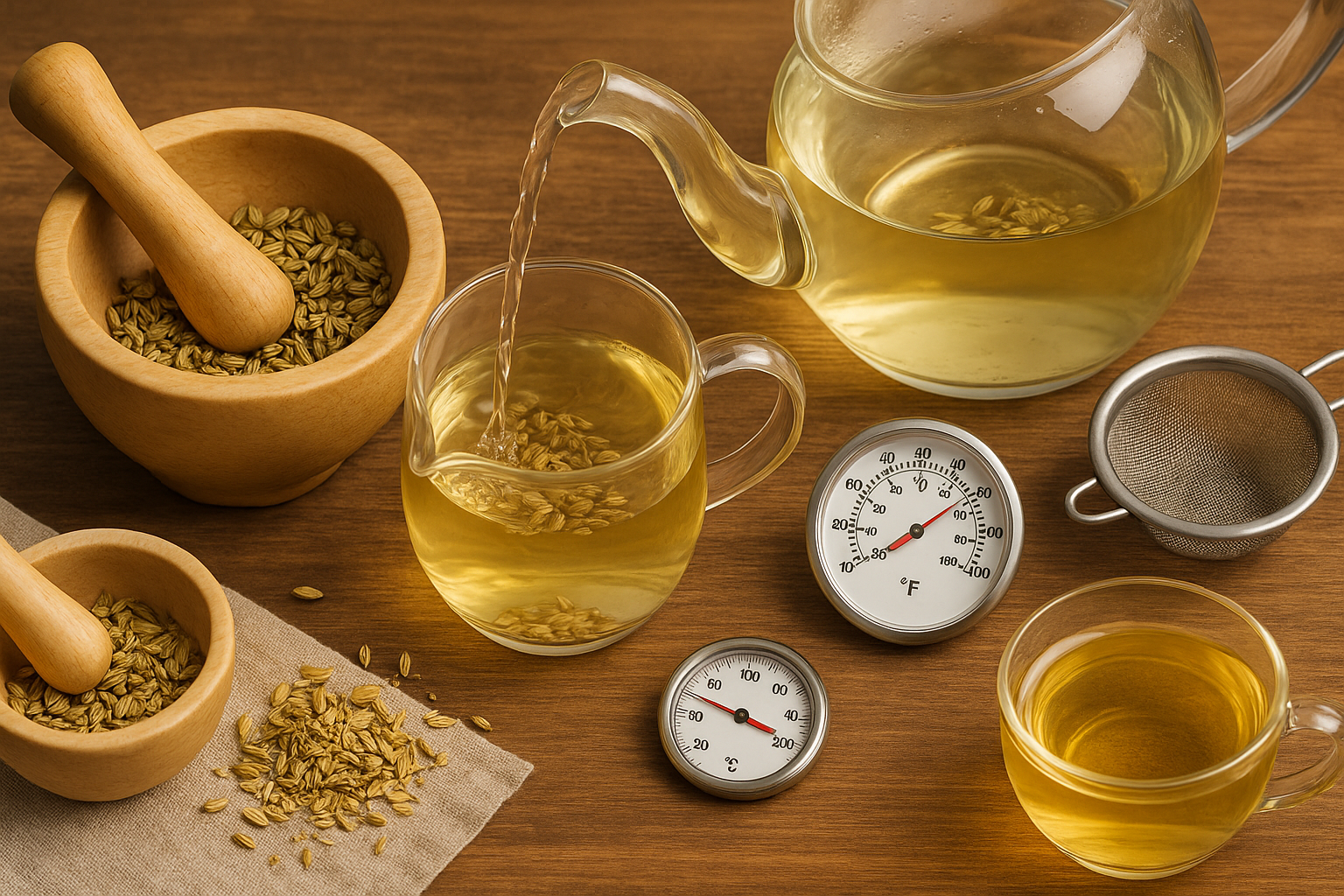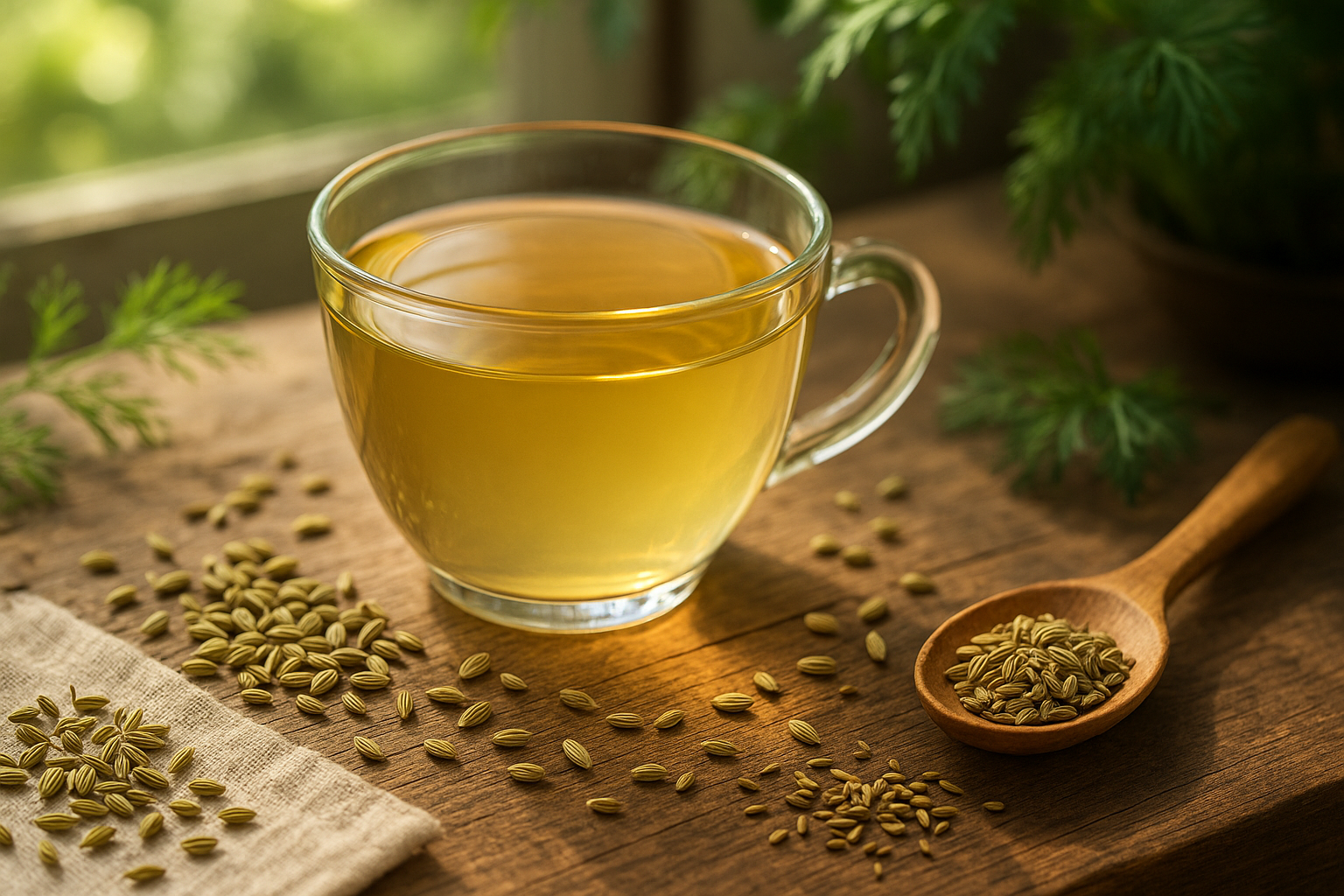Introduction to Fennel Tea
Fennel tea benefits have been gaining attention as more people discover the unique flavor and wellness perks of this ancient herbal brew. Originating from the Mediterranean region, fennel seeds have long been used in culinary and medicinal traditions. However, it’s only recently that fennel tea has gained popularity among modern tea lovers.
The rise in demand for herbal teas like fennel is part of a larger trend—many individuals are seeking natural alternatives to support digestion, soothe stress, and improve overall health without relying solely on pharmaceuticals. With its slightly sweet, aromatic taste and gentle, soothing effects, fennel tea stands out as a comforting choice, whether you need a caffeine-free afternoon pick-me-up or a relaxing bedtime drink.
In this article, we’ll explore the impressive list of fennel tea benefits backed by both science and tradition, such as its potential to ease bloating, support heart health, and even freshen breath. Plus, we’ll show you how to prepare the perfect cup right in your kitchen, along with handy tips to maximize both flavor and health benefits. Whether you’re a wellness enthusiast or simply enjoy exploring new herbal flavors, you’ll find practical insights to savor every sip.
What is Fennel Tea?

Fennel tea is a soothing herbal brew made from the seeds of the fennel plant, a feathery green herb native to the Mediterranean but now grown worldwide. These tiny, oval-shaped seeds are packed with aromatic oils and have a distinctive flavor profile that sets fennel tea apart from other herbal infusions.
To make fennel tea, the seeds are lightly crushed to release their natural oils, then steeped in hot water for several minutes. The resulting beverage has a pale golden color and a deliciously inviting aroma—mildly sweet with notes of licorice and a subtle earthiness. The taste is smooth and comforting, making it an appealing choice for those who enjoy naturally sweet teas without added sugar.
Fennel tea isn’t just appreciated for its pleasant flavor; it carries a rich cultural history as well. In the Mediterranean region, fennel seeds have been used for centuries as an after-dinner digestive aid, often sipped as tea to ease bloating and discomfort. In India, fennel seeds—known as “saunf”—are commonly chewed or brewed into tea following meals, both for their refreshing taste and their role in supporting digestion and freshening breath.
Across the Middle East and North Africa, fennel is also featured in spice blends and served as a calming herbal remedy. With its global roots and inviting, licorice-like sweetness, fennel tea offers both flavor and tradition in every cup.
Top Health Benefits of Fennel Tea
Fennel tea is a soothing herbal brew that offers a surprising range of health benefits, making it a great addition to your daily routine. One of its standout advantages is digestive support—fennel tea is well-known for helping to ease bloating, gas, and discomfort after meals. Sipping a cup of fennel tea can gently relax the digestive tract, which may relieve that too-full feeling or help with occasional indigestion.
For those who struggle with winding down after a long day, fennel tea’s mild and natural calming properties can also promote relaxation and support better sleep. Instead of reaching for sugary mints or gum, try fennel tea for fresher breath. Its gentle, licorice-like flavor not only masks unpleasant odors but may also help keep your mouth feeling clean.
Beyond these immediate perks, fennel tea is rich in antioxidants—natural compounds that help your body fight off the effects of stress and support your immune system. Drinking it regularly could help strengthen your overall defense against common illnesses.
Don’t underestimate its basic benefits either: since fennel tea is naturally caffeine-free and hydrating, it helps you reach your daily fluid goals without adding extra calories or sugar.
Another interesting bonus is that fennel tea has traditionally been used by women to support breast milk production, though it’s always a good idea to consult your healthcare provider if you’re considering it for this purpose.
To enjoy these benefits, simply steep a teaspoon of fennel seeds in hot water for about ten minutes and sip slowly—add a slice of lemon or a dab of honey if you like. Whether you need a stomach soother, a gentle relaxant, or just a pleasant, healthy alternative to other drinks, fennel tea is a simple choice with plenty to offer.
How to Make Fennel Tea (Step-by-Step)

Making fennel tea at home is simple and rewarding, offering a fresher flavor and stronger aroma than most store-bought tea bags. Start by measuring out one to two teaspoons of whole fennel seeds per cup of water—a little more if you prefer a stronger brew.
Use a spoon or mortar and pestle to lightly crush the seeds; this helps release their essential oils for maximum taste. Bring water to a gentle boil, then let it cool for a minute, as boiling water can make the tea taste bitter. The ideal temperature is around 200°F (93°C).
Pour the hot water over your crushed seeds in a teapot or mug, cover, and let it steep for 8 to 10 minutes. Taste and adjust; longer steeping increases strength, but too long can make it overpowering. Strain out the seeds and enjoy as is, or add a squeeze of lemon, a drizzle of honey, or mix in herbs like mint or chamomile for a personalized twist.
Homemade fennel tea gives you control over flavor intensity and ingredient purity, setting it apart from bagged versions that often contain finely ground seeds and sometimes fillers, which can weaken the taste.
For an iced version, chill the tea and serve over ice with fresh herbs. Experiment with creative infusions and enjoy a soothing drink that supports digestion and relaxation straight from your own kitchen.
When and How Much to Drink
For the best results, try sipping fennel tea after meals to support digestion and soothe any feelings of bloating or discomfort—many people find it especially comforting after a heavy dinner. Another great time to enjoy fennel tea is about half an hour before bedtime; its calming properties may help you unwind and settle your stomach before sleep.
Most adults can safely enjoy one to three cups of fennel tea per day, but it’s smart to start with one cup and see how your body responds. If you have any health conditions or are pregnant, be sure to chat with your doctor first.
Fennel tea fits best into a balanced wellness routine when paired with other healthy habits, such as:
- Drinking plenty of water throughout the day
- Eating a variety of whole foods
- Getting regular exercise
For example, you might swap your afternoon coffee for a cup of fennel tea to cut down on caffeine while still enjoying a soothing ritual. Adding fennel tea to your daily routine doesn’t have to mean major changes—think of it as a gentle, flavorful boost to your overall well-being, rather than a quick fix or substitute for a healthy lifestyle.
Possible Side Effects and Precautions
While fennel tea is generally safe for most people, it’s important to be aware of potential side effects and allergy considerations. Some individuals may experience mild digestive discomfort, such as nausea or an upset stomach, especially if consumed in large quantities.
Rarely, allergic reactions can occur, presenting as rash, itching, or swelling. If this happens, stop drinking fennel tea and seek medical advice immediately.
Fennel contains phytoestrogens, which may mimic the hormone estrogen in the body. Because of this, pregnant or breastfeeding women should avoid fennel tea unless recommended by their healthcare provider, as it could potentially affect hormone-sensitive conditions or pregnancy.
Similarly, fennel tea is not recommended for young children without pediatric guidance.
Those on certain medications—such as antibiotics, blood thinners, or hormonal treatments—should exercise caution, since fennel may interact and either decrease or intensify medication effects.
If you have a history of allergies to carrots, celery, or related plants, be extra cautious, as fennel is in the same botanical family and cross-reactivity is possible.
Always start with small amounts to test your body’s response, and practice moderation even if you tolerate fennel well.
If you have any underlying health conditions or take prescription medicines, it’s wise to consult your doctor or a qualified healthcare professional before adding fennel tea to your routine. This ensures you can enjoy its benefits safely, without unwanted side effects.
Conclusion & Takeaway Tips
Fennel tea is a simple yet powerful addition to your daily routine, offering benefits ranging from improved digestion to a soothing sense of calm. Its naturally sweet, subtle flavor makes it an easy swap for your usual cup of coffee or evening tea—just steep a teaspoon of crushed fennel seeds in hot water for about ten minutes, strain, and enjoy.
Many people notice less bloating and a more settled stomach within a few days. Don’t be afraid to experiment: try drinking it after meals or before bed to see what works best for you. For those curious about tracking changes, keeping a wellness journal can help you notice subtle improvements in how you feel.
If you enjoy the ritual, branch out and explore other herbal teas like peppermint or chamomile. Small changes like this can add up, so why not give fennel tea a try and see how it fits into your life?
